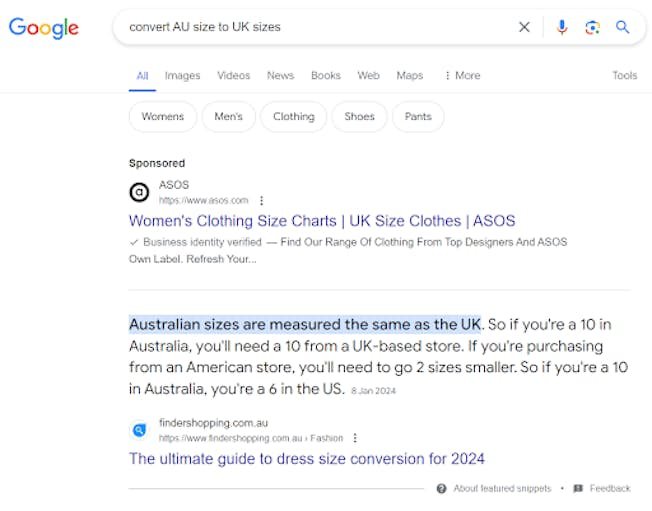You’ve heard that Search Engine Optimization (SEO) is a vital digital marketing tool. But do you know how SEO works?
SEO is composed of various elements and involves the process of generating traffic from free, organic, editorial, or natural search results in search engines.
By leveraging SEO, you can make your website more visible. The #1 result in Google’s organic search results has an average CTR of 27.6% (compared to second and third-ranking results getting 18.7% and 10.2%), according to Backlinko research. So, getting that top spot or a place on Google’s first SERP page means more traffic and more opportunities for you to convert prospects into customers.
Now there’s also artificial intelligence to consider. AI-powered algorithms like Google’s RankBrain have significantly impacted SEO by enhancing search results. This is resulting in a more complex SEO landscape (more on that later…)
With all that in mind, let’s explore why SEO is so important and look at the 5 crucial elements of SEO you can use to drive traffic, generate quality leads, and make sales.
What are the Benefits of Using SEO?
There’s a good reason that many companies have SEO experts on their team and spend resources and money on using the tactic in marketing activities – it works!
Let’s look at four of the biggest benefits of using SEO and its impact on web traffic and leads.
1. SEO increases visibility and improves rankings
One of the most important functions of SEO is to increase your visibility, which means making it easier for prospects to find you when they search for something you have to offer. Visibility is directly related to your ranking.
The higher you rank on a search engine result page (SERP), the more likely prospects will see you and click through to your site, so it’s key to increase your organic page ranking.
For example, we recently updated a top-performing blog on influencer statistics that had slipped down the rankings. By updating the content with new information and statistics, the blog now takes the top spot on Google.

2. SEO drives web traffic
Increased web traffic is one of the main goals of SEO. Consider this for a moment: the #1 organic result on Google search is 10x more likely to receive a click compared to a page in the #10 spot, according to Backlinko.
So, the further you move up the ranking, the more web traffic you will get.
The golden grail for many marketers is the ‘Featured Snippet’, which is often referred to as position #0 as it appears above the first-ranked URL. This is usually content taken from a blog or landing page that answers a question people are searching for.
Here’s an example of a Featured Snippet when typing in the query ‘convert AU size to UK size’.

If you manage to get a Featured Snippet you should give your organic click-through rate a huge boost. The key thing is to provide a solution through content that Google sees as useful enough to feature as a Featured Snippet.
If you want more people to find your website through a search engine, use SEO practices to rank among the top five positions, and ideally number one.
If you’re looking for agency support in the areas of SEO, content marketing and paid media, get in touch with Neil Patel Digital.
3. SEO shows authority
Page Authority (PA) is increasingly important to search engines as it’s becoming more important to web users.
Essentially, authority means that your website is trustworthy, high quality, relevant, and has something valuable to offer. This ties in with the fundamentals of Google E-E-A-T, which plays a big part in how your site is evaluated.
Scores range from 1 to 100 and the higher your number, the more authority your site has. You can find your PA rating by using tools such as Moz.
While it can be difficult to influence Page Authority, many SEO experts believe the best way to improve it is to create quality content, earn backlinks from reputable and trustworthy domains and reduce spam.
4. SEO delivers a better customer experience
Another reason SEO is critical is because all the time you put into generating great content and on-page SEO optimization improves the usability of your site. This creates a seamless and positive customer experience.
For instance, when you take steps to make your site responsive, it will make it usable for all your mobile visitors as well as people who visit from a laptop or desktop.
Similarly, by increasing your page load speed, you’ll reduce your bounce rate and encourage visitors to spend longer on your site. Consumers expect a page to load as quickly as possible with a limit on loading to not creep past three seconds!
The longer the load time, the higher the bounce rate and the lower your conversions.
You should also look at the customer journey. Review each touchpoint that a customer would come across. For example, on clicking a blog in Google search where does the customer go and what do they see? Is the content of high quality and relevant to search intent? Can they read the blog with limited interruptions (e.g. pop-ups)?
Go on the journey yourself to test the experience. If there’s something that distracts or hinders your experience, a customer will likely experience the same.

